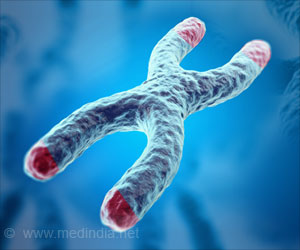The study reports that this assay is based on the use of two isogenic HT1080 cell lines, one carrying a linear human artificial chromosome (HAC) and the other carrying a circular HAC.
‘Transient telomere dysfunction can induce chromosomal instability in human cells that may result in cancer. G4 ligands that induce telomere dysfunction and greatly increase chromosome mis-segregation rates are promising drug candidates for the treatment of cancer alone or in combination with ionizing radiation.’
G4 Ligand against Cancer
It is known that the cancer drug treatment results in specific destabilization of the linear HAC, due to the disruption of telomeres. The study used the dual-HAC assay for the analysis of the platinum-derived G4 ligand Pt-tpy and five of its derivatives.
The formation of G4s at telomeres could impede telomerase recognition and inhibit telomere elongation leading to telomere shortening. Thus, telomeres are promising targets for the discovery of ligands that stabilize G4s at telomeres, thereby perturbing telomere maintenance and leading to genomic instability.
The study thereby suggests that G4 ligands that induce telomere dysfunction and greatly increase chromosome mis-segregation rates are promising drug candidates for the treatment of cancer alone or in combination with ionizing radiation.
Source: Medindia



